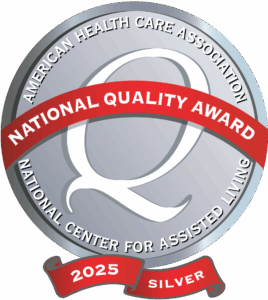March has been designated as Save Your Vision Month by the American Optometric Association (AOA). This is the month the AOA chooses to stress the importance of eye health and make sure you’re receiving regular, comprehensive care from an optometrist. If you haven’t seen an eye doctor in the past year, use this month as a reminder to make an appointment for your annual eye exam!
Common Senior Eye Health Issues
As we age, it’s common to experience changes in our vision. However, by properly taking care of your eyes, these changes don’t have to have a major effect on your daily life. Scheduling regular eye exams becomes vital as you reach your senior years, especially because many of the issues you might experience show no warning signs at all.
Here are a few of the common age-related eye health issues for seniors:
- Cataracts: Cataracts are a clouding of your vision and are probably the most common eye health issue associated with aging. In fact, half of all Americans have cataracts by the time they reach 80 years old. If you’re experiencing blurry, dim, cloudy or double vision, have trouble seeing in dim light or are noticing halos or sensitivity to light, these are some of the common symptoms of cataracts. Cataract surgery is sometimes required to remove the cloudy lens and replace it with a clear implant, but in earlier stages simply changing your eyeglasses prescription can help.
- Age-related macular degeneration (AMD): The macula is the center of the light sensitive retina at the back of the eye that allows us to see fine detail and colors, and this eye disease affects this portion of the eye. You might experience difficulty reading or watching television without good central vision, however, your peripheral vision will not be affected. Early detection of AMD is key to preventing it from disrupting your life.
- Retinal detachment: Retinal detachment occurs most often as a result of changes to the vitreous fluid in the back of our eyes. It’s a tearing or separation of the retina from the underlying tissue, and if not treated right away can cause permanent vision loss.
- Presbyopia: Another common senior eye health issue is having trouble focusing on objects close-up, like reading fine print. Presbyopia is a hardening of the lens of the eye and/or muscles changes around the eye as we age, which can make it difficult for the lens to work as it should. Sometimes, simply using reading glasses can help with this condition.
- Dry eye: Dry eye is common in older adults who don’t have a sufficient amount of good-quality tears to moisten their eyes. Symptoms include burning, gritty, watery or irritated eyes and blurred vision. If these symptoms become severe, the cornea can become damaged.
- Glaucoma: Seniors are also at a higher risk for glaucoma, which is a group of eye diseases that damage the optic nerve and cause vision loss.
Senior Eye Care: Healthy Vision as You Age
The first step in protecting your vision as you age is to make sure you’re seeing your eye doctor on a regular basis. However, there are certain precautions and healthy lifestyle choices that can also keep your eyes in good shape. For example, eating a well-balanced diet that includes green, leafy vegetables, oily fish like salmon and tuna and non-meat protein sources like nuts and eggs. If you smoke, it’s time to quit; smoking makes you more likely to get cataracts and AMD and can damage your optic nerve. When outside on a sunny day, wear sunglasses to protect your eyes from the sun’s damaging UVA and UVB rays. If you work on a computer daily, take a break from staring at the screen every 20 minutes. All of these changes can help ensure your eyes stay healthy well into your senior years.
For more information about American Senior Communities, please visit www.ASCSeniorCare.com.




